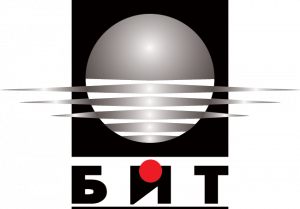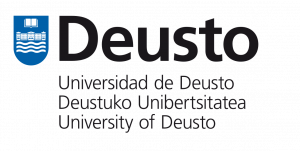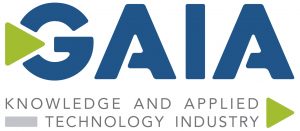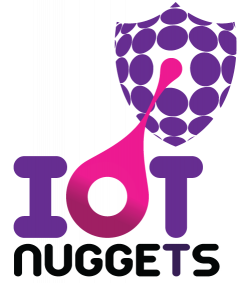- University of Library Studies and Information Technologies (ULSIT), Bulgaria
- Knowledge, Innovation and Strategies Management Club, Bulgaria
- IDEC: Aintek symvouloi epicheiriseon ypsilis technologias ekpaidefsi anonymi etaireia, Greece
- The University of Deusto, Spain
- Dlearn: European Digital Learning Network, Italy
- GAIA: Asociacion de industrias de conocimiento y technologia, Spain
 University of Library Studies and Information Technologies (ULSIT), Bulgaria
University of Library Studies and Information Technologies (ULSIT), Bulgaria
Project coordinator, research@unibit.bg
The UULSIT social mission is to prepare highly qualified, socially responsible personally motivated and adaptive to the labour market specialists. The University has the strategic aim for sustainable development as a leading higher school with a significant scientific, technological and innovative potential. ULSIT has the ambition to continue the implementation of the so-called Third Mission of the universities – to work on projects with national and regional significance.
ULSIT has gained educational, scientific, technological and innovation capacity, able to get actively involved in the European Research and Innovation Area by implementing projects under Horizon 2020, Erasmus+ and TEMPUS Programmes, as well as in other international projects, and initiatives. ULSIT has partnerships with many European research and educational centres and high technological companies especially in the field of Internet technologies, education technologies, etc.
 Knowledge, Innovation and Strategies Management Club, Bulgaria
Knowledge, Innovation and Strategies Management Club, Bulgaria
The Knowledge, Innovation and Strategies Management Club” (KISMC) is a Bulgarian NGO established in 2012 by experienced consultants and adults’ trainers united by the primary purpose to stimulate the transfer and use of contemporary methodologies and tools in the Bulgarian enterprises for better management efficiency and labour force skills. The main objective of the NGO is to promote the transfer and use of modern methods and tools for knowledge, innovation and strategies management in companies and organisations in Bulgaria in order to achieve higher efficiency of governance in the country and improve the competitive position of individual businesses and organisations.
Driven by the club founders’ experience in management consulting, business development, innovation management and entrepreneurship as well as years of profound observations of the market environment and global changes the Knowledge, Innovation and Strategies Management Club has been established as a non-profit organisation to help businesses survive during difficult times and changes through:
- gaining competitive advantage over fierce competitors;
- realising innovative modern tools to optimise their intellectual potential;
- focusing on their strategy.
 IDEC: Aintek symvouloi epicheiriseon ypsilis technologias ekpaidefsi anonymi etaireia, Greece
IDEC: Aintek symvouloi epicheiriseon ypsilis technologias ekpaidefsi anonymi etaireia, Greece
IDEC is a training consulting company located in Piraeus, Greece. Its activities consist of training, management consulting, quality assurance, evaluation and development of ICT solutions for both private and public sector. IDEC has been active the last 20 years in the field of EU projects. It has long experience in European policies regarding lifelong learning and in particular EQF, ECVET, Europass, EQAVET, validation of non-formal and informal learning and in national reforms of education and training systems.
Contact person: Xenia Chronopoulou | xenia@idec.gr | www.idec.gr | +302104286227
The University of Deusto, Spain
The University of Deusto was inaugurated in 1886. The concerns and cultural interest of the Basque Country in having their own university, as well as the interest of the Jesuits in establishing higher studies in some part of the Spanish State coincided in its conception. Bilbao, a seaport and commercial city which was undergoing considerable industrial growth during that era, was chosen as the ideal location.
Bilbao is the centre of a metropolitan area with more than one million inhabitants, a city traditionally open to Europe. It is also an important harbour and a commercial and financial centre of the Basque Country and the north of Spain. In September of 1997, the city underwent a significant transformation under the emblematic symbol of the Bilbao Guggenheim Museum. The central headquarters of the University of Deusto is located on the opposite side of the estuary, facing the Guggenheim Museum. In 1916, the “Universidad Comercial de Deusto” received a group of students who would be the first graduates in Economic Sciences in Spain, 25 years before this degree was officially recognised.
In 1963, the Institute of University and Technical Studies of Guipuzcoa in San Sebastian was formed by the integration of three already-existing entities. This institute, years later, would form a part of the University of Deusto. Therefore, the University is located on two campuses, in the two coastal capitals of the Basque Country: Bilbao and San Sebastian.
Beyond individual projects and research which is co-ordinated from chairs such as Law and the Human Genome, Leisure and Disabilities, there is a clear option for the social topics of interdependency, distribution of resources, migration, human rights, development, poverty and environment, ethics and society at the university. Studies on cultural identity (individual and collective), and European integration processes are being carried out by various international research groups.
The University of Deusto is striving for internationalisation, without excluding other regions, and demonstrates a clear commitment to Europe and Latin America, having signed agreements with more than 200 universities.
Approximately 1,300 students and 50 professors take part in mobility programmes. The faculties, institutes and schools are also involved in intensive programmes, European modules and joint curricular designs at various levels, as they participate in cross-border activities, integrated languages, ODL and Leonardo programmes. The entire University adopted the European credit system in 1994 and works to promote it and improve its quality. Deusto was the first European university to extend the European credits to all its faculties.
web@deusto.es
Bilbao campus, Spain: +34 944 139 000, San Sebastian campus: +34 943 326 600
 Dlearn: European Digital Learning Network, Italy
Dlearn: European Digital Learning Network, Italy
The European Digital Learning Network – DLEARN – aims to embrace the challenges brought by the digital revolution in terms of digital skills mismatch, toward an inclusive digital society. The 47% of Europeans is not properly digitally skilled – yet in the near future 90% of jobs will require some level of digital skills and numerous opportunities in terms of jobs that are going to shape the labour market. Our aims are characterized by 4 key-words: SHARE, CONNECT, MULTIPLY, ENHANCE. DLEARN is a collector of practices and ideas, gathering diverse organizations in Europe to reflect, think and trigger new initiatives, toward the valorisation and the enhancement of digital learning.
The network was born from the initiative of 20 different organizations from all over Europe, active in the field of education and digital learning at various levels.
 GAIA: Asociacion de industrias de conocimiento y technologia, Spain
GAIA: Asociacion de industrias de conocimiento y technologia, Spain
GAIA is the Association of Knowledge and Applied Technologies Industries (ICTA) in the Basque Country, a private and professional non-profit organisation, established in 1983, currently made up of 260 companies that offer products and services in the field of electronics, information technology, consulting, engineering and telecommunications.
GAIA’s mission is to boost the development and growth in the ICTA sector, and to favour the assimilation and efficient usage of the sector’s technologies, with the aim of collaborating in the development of the Information and Knowledge Society. It is also a regional Cluster and it promotes the Networking with key stakeholders within the Basque Region, and policy and ICT Deployment to the industry.
